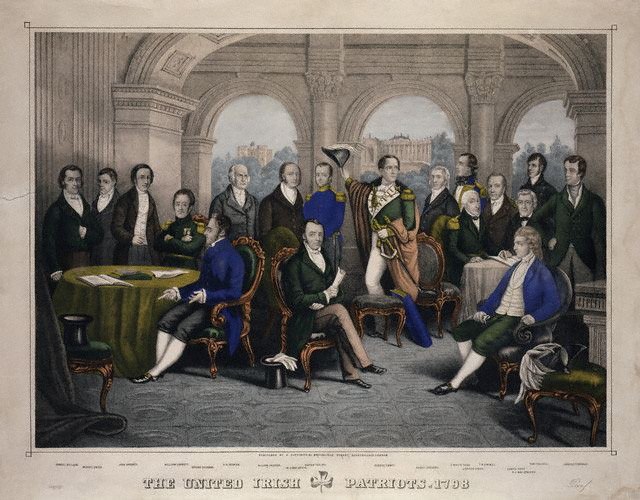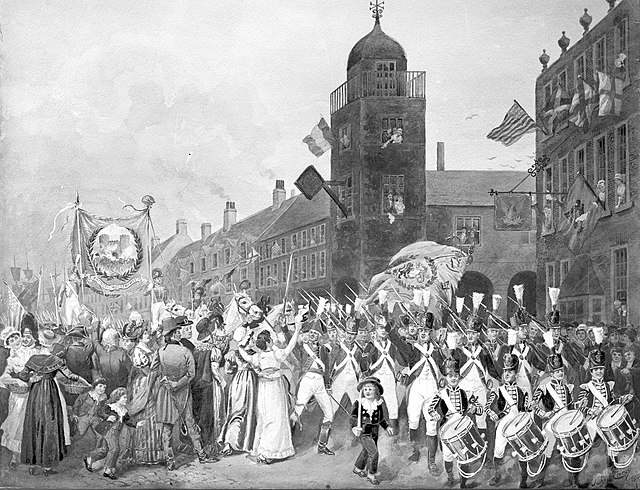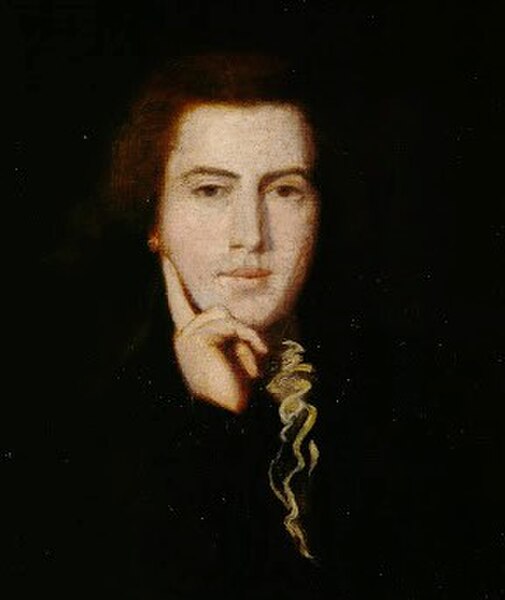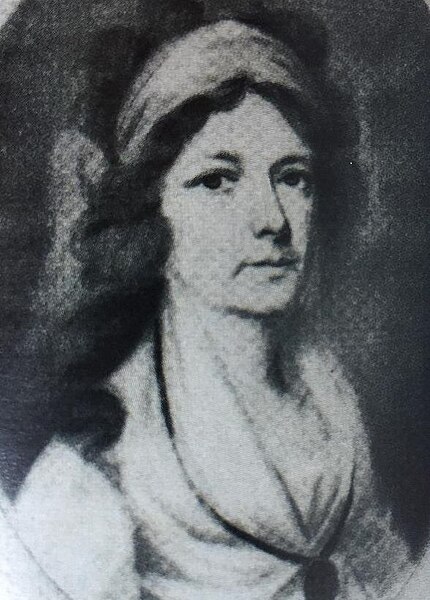Lord Edward FitzGerald was an Irish aristocrat and nationalist. He abandoned his prospects as a distinguished veteran of British service in the American War of Independence, and as an Irish Parliamentarian, to embrace the cause of an independent Irish republic. Unable to reconcile with Ireland's Protestant Ascendancy or with the Kingdom's English-appointed administration, he sought inspiration in revolutionary France where, in 1792, he met and befriended Thomas Paine. From 1796 he became a leading proponent within the Society of United Irishmen of a French-assisted insurrection. On the eve of the intended uprising in May 1798, he was fatally wounded in the course of arrest.
Lord Edward FitzGerald
"Mrs Richard Brinsley Sheridan", aged 31, by Gainsborough (National Gallery of Art)
Portrait of Edward FitzGerald by Hugh Douglas Hamilton, 1796. National Portrait Gallery, London.
Arrest of Lord Edward FitzGerald (George Cruikshank)
Society of United Irishmen
The Society of United Irishmen was a sworn association, formed in the wake of the French Revolution, to secure representative government in Ireland. Despairing of constitutional reform, and in defiance both of British Crown forces and of Irish sectarian division, in 1798 the United Irishmen instigated a republican rebellion. Their suppression was a prelude to the abolition of the Irish Parliament in Dublin and to Ireland's incorporation in a United Kingdom with Great Britain.
The United Irishmen
Bastille Day, 1792, Belfast. Volunteer companies parade "The Colours of Five Free Nations, viz.: Flag of Ireland – motto, Unite and be free. Flag of America – motto, The Asylum of Liberty. Flag of France – motto, The Nation, the Law, and the King. Flag of Poland – motto, We will support it. Flag of Great Britain – motto, Wisdom, Spirit, and Liberality." Also portraits of Franklin – motto "Where Liberty is my country", and of Mirabeau – motto, "Can the African Slave Trade, though morally wrong, be politically right".
William Drennan: "what is a country properly considered but a free constitution?"
Martha McTier, "'Tis only the Rich are alarmed, or the guilty. I am neither."








